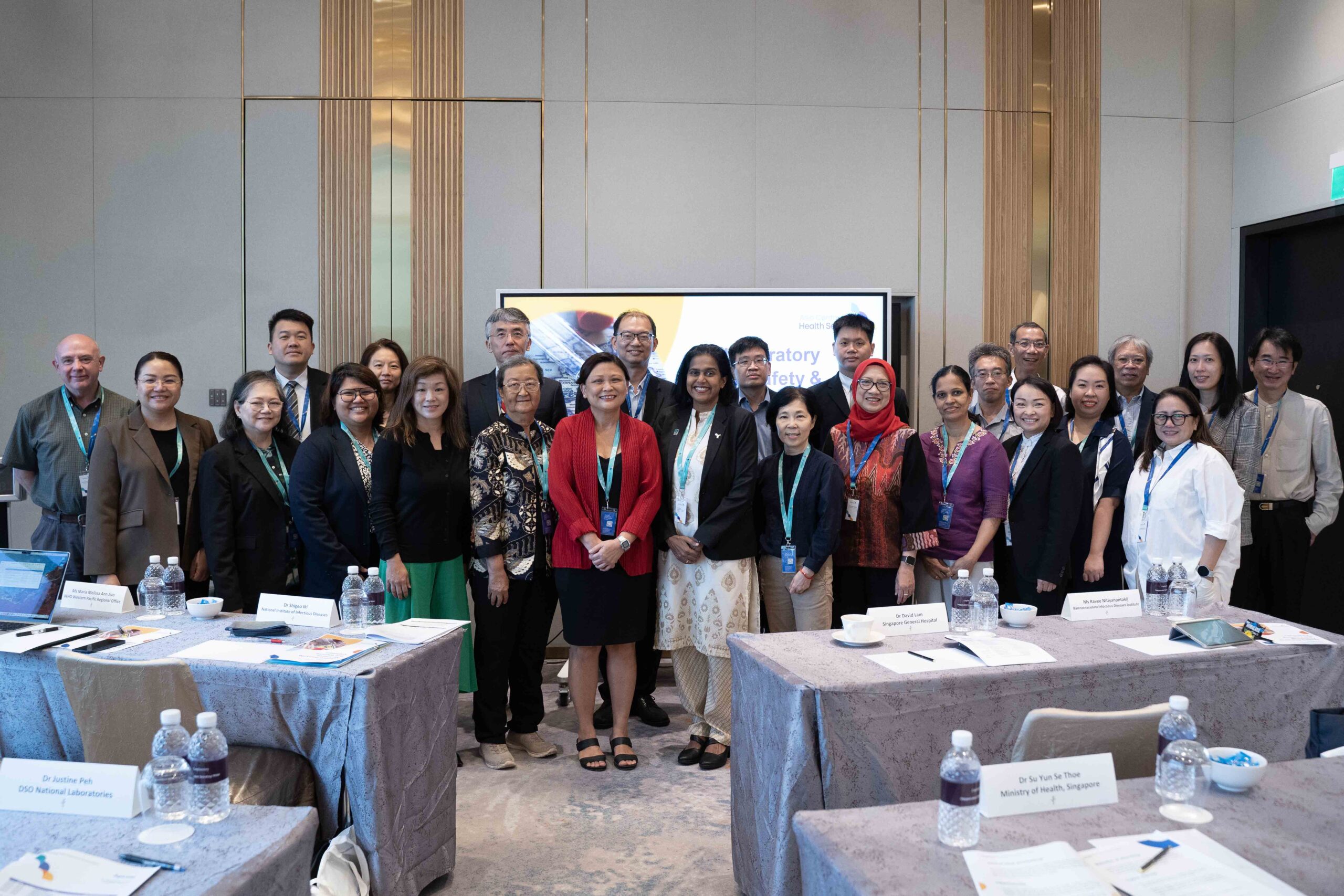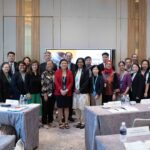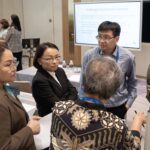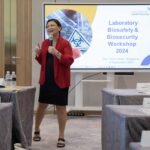- Home
- Meetings & Events
- Events
- Laboratory Biosafety and Biosecurity Workshop 2024
Meetings & Events
Laboratory Biosafety and Biosecurity Workshop 2024

Participants at the Laboratory Biosafety and Biosecurity Workshop 2024
The inaugural Laboratory Biosafety and Biosecurity Workshop (LBB24) established by the Asia Centre for Health Security (ACHS) was held in Singapore from 12 to 13 September 2024 and brought together over 25 senior-level experts from across Asia to discuss and tackle critical issues in laboratory biosafety and biosecurity (LBB).
LBB24 provided participants with updates on LBB guidance, issues with responsible use of life sciences (RUL) and dual use research (DUR), and enhanced pandemic potential pathogens (ePPP). Critical developments on international guidelines and best practices from the World Health Organization (WHO), fourth edition of the Laboratory Biosafety Manual (LBM4), as well as recent frameworks such as the National Science Advisory Board for Biosecurity (NSABB) Framework and the Guidance for Responsible Use of Life Sciences & Dual Use Research were shared. These updates are vital for keeping pace with evolving standards and practices in the field.
Fostering discussion on the current landscape in participants’ countries, the workshop centred on developing and staffing maximum containment laboratories, biosafety considerations for testing high-level isolation pathogens (HLIPs), addressing challenges, gaps, and resources for laboratories across government, academia and private sector settings. There were also a series of case studies which provided practical advice on improving staff safety and managing high-level pathogens using past experiences in the management of SARS and mpox. They highlighted crucial workflows and considerations for optimising laboratory operations and offered valuable insights into strengthening pandemic preparedness.
Participants shared insights and solutions to enhance laboratory biosafety and biosecurity in their home countries, and this exchange was instrumental for identifying potential resources and strategies to improve lab safety and security across the region. These discussions underscored the importance of implementing effective changes based on real-world experiences and highlighted strategies biosafety considerations when dealing with high-level isolation pathogens and managing maximum containment laboratories. This ensures laboratories are prepared to handle emergencies effectively while upholding optimal safety and operational continuity.
The workshop highlights the importance of investing in people, with a focus on securing funding to enhance networking and financial support for these initiatives. Improvements in facilities maintenance, such as increasing the servicing frequency of Biological Safety Cabinets (BSC), were highlighted as a way to reduce financial resources and manpower. These changes were suggested to be supported by data and align with certifications like NSF49, with some degree of flexibility.
Suggestions included offering online resources and courses accessible globally. Participants recommended integrating affordable renewal options and scholarships into credentialing systems, partnering with universities and organisations for accredited online courses, and establishing clear standards for facility and individual certifications. However, challenges such as language barriers and accreditation requirements were also noted as potential obstacles to acquiring credentials.
The LBB24 workshop has successfully established a regional community of practice. By bringing together experts focused on advancing lab biosafety and biosecurity, the workshop has laid the foundation for ongoing collaboration and mutual support among professionals across the field.
We extend our heartfelt thanks to all participants and faculty of the Laboratory Biosafety and Biosecurity Workshop 2024, for their invaluable contributions and look forward to continuing our collective efforts to enhance lab safety and security in the future. Check out highlights from the event here.






